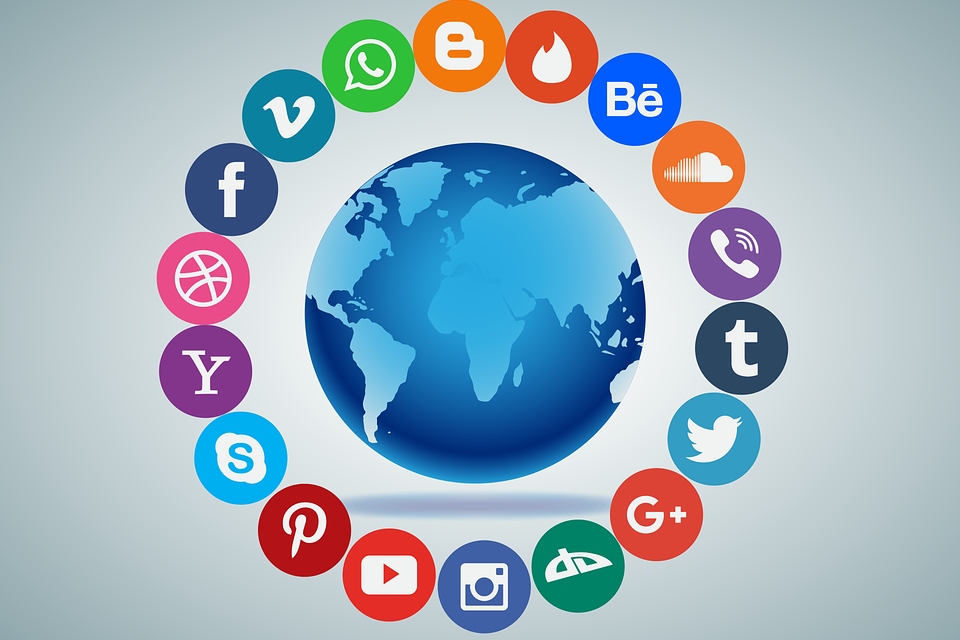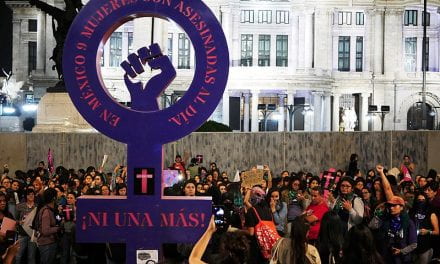By: Connor A. McNairn*
In a world where social media platforms facilitate individuals’ exposure to news, current events, and the lives of friends and family, Internet access is a necessity. Because social media and Internet use are omnipresent, those utilizing online platforms likely spend little time contemplating the minutiae of digital security, data gathering practices, and more. But within the past year and a half, Facebook – a social media behemoth offering access to all things relevant in the daily lives of its users – has been mired by controversy. First, the popular social media platform has done little to guarantee source integrity for its users; that is, journalistic objectivity was the least of Facebook’s concerns during momentous political processes such as the 2016 American election and UK “Brexit” vote. What is more, Facebook’s growth and virtual presence have proven that, while profitable, such widely accessible platforms are clear targets for nefarious actors hoping to, among other things, gain political leverage and harm the efficacy of democratic processes. And because social media’s influence transcends state borders, threats posed by particular actors create myriad international implications.
While social media platforms like Snapchat, Instagram, and Twitter offer particular opportunities for users to send messages via picture sharing, post photos, and share posts with a finite amount of characters, Facebook incorporates all elements of the social media experience to deliver a comprehensive product to its users. With 2.2 billion users, the platform extends its sphere to all parts of the world, effectively creating a sense of community among its users.[1] But what was first created as a virtual community designed to facilitate online connections has devolved into a platform of relatively unregulated exchange that has profoundly derailed democratic processes throughout the world.
The Rise of “Fake News”
During the 2016 presidential election, the United States was the focus of global political attention. With big name candidates hurling fiery rhetoric at one another, the world watched in awe and excitement. That said, paramount to global perception of the rhetorically charged campaign was the dissemination of partisan rhetoric and propaganda, much of which was journalistically unfounded and driven by mistruths. One such partisan outlet – Breitbart – established a predominant presence on the social media platform. In fact, “a right-wing media network anchored around Breitbart developed as a distinct and insulated media system.”[2] Strikingly, while dominant news sources like the New York Times and CNN maintained astronomical sharing statistics, Breitbart also grew remarkably popular, earning millions of shares throughout the election cycle.[3] With the growing popularity of strictly partisan media outlets on Facebook’s platform, viewers became increasingly exposed to “fake news.”[4]
Throughout the American election process, Facebook offered little clarification for users regarding the truth and substance of media shared on its website. In fact, “in the final three months of the U.S. presidential campaign,” popular fake-news stories and hoaxes generated more Facebook engagement than The New York Times, The Washington Post, NBC News, and other reputable outlets.[5] Americans, however, were not the only Facebook users who fell victim to nefarious publications and designed media hoaxes. Nearly a year after the United Kingdom voted to exit the European Union, a process commonly referred to as “Brexit,” it is difficult to overstate the degree to which fake news motivated voters. According to Philip Howard, a professor at the University of Oxford’s Internet Institute, “Brexit and its outcome, and the Trump election and its outcome, are what I think of as ‘mistakes.’”[6] While Howard notes that a large amount of misinformation comes from “bubbles of education” and individuals who are unable to think critically, he argues that the most prominent form of fake news dissemination “is Facebook serving junk news to large numbers of users.”[7] The political processes within individual states, specifically those that elect leaders and make official law, are fundamental to states’ abilities to function in an international political theater. That said, when major social media outlets such as Facebook enjoy global influence and remain subject to the influence of unfounded “news” stories, the efficacy of such processes is compromised.
Adversarial Intentions
Because individual users are regularly and unknowingly exposed to misinformation on Facebook and other social media platforms, both state and non-state actors have used such platforms to compromise the integrity of major political processes. Most notably, during the 2016 presidential election, Russian operatives, through a complex operation targeting individual users, spread thousands of misguiding political ads aimed at undermining the Clinton campaign and sowing racial and ideological discord throughout the American populous.[8] According to Jonathan Albright, research director of Digital Journalism at Columbia University, six publicly recognized Russia-linked Facebook pages amassed over 340 million shares.[9] It is also worth noting that these 340 million shares came from just six of 470 Russian operative Facebook pages.[10]
Russian election meddling, while highly effective on platforms like Facebook, also played a significant role on Twitter. In late 2017, Rep. Adam Schiff (Calif.), the ranking Democrat on the House Intelligence Committee, published a list of Twitter accounts that were identified as linked to Russian meddling efforts.[11] While Schiff’s release was striking for the amount of active Russian meddlers engaged on the social media platform, even more significant were the interactions that these meddlers had with key figures in American politics. Eric Trump, for example, retweeted a Russian account posing as the Tennessee Republican Party.[12] This same account earned retweets from other major political actors like Kellyanne Conway, Donald Trump Jr., and Roger Stone.[13] While it is impossible to quantify the impacts of Russian election meddling in the 2016 US election, nearly three-quarters of Americans are concerned about foreign interference in both past and upcoming elections, and it is unclear whether the Trump administration is willing to address blatant foreign interference in future.[14]
The United States, however, has not been the only victim of Russian fake news meddling. In fact, 16 other states, including France, Germany, South Korea, the United Kingdom, and Italy have been “touched by fake news reports and had websites and social media accounts vandalized.”[15] With the growth and expansion of social media platforms throughout global communities, Russian interference clearly illustrates the political risks involved with widespread Internet access and lax media restrictions. Foreign meddlers, however, are not the only risk to social media users.
Cambridge Analytica
With regard to user security, Facebook has proven incapable of protecting individual information and data. During the 2016 presidential election, Cambridge Analytica, an England-based data firm, was hired by President Trump to collect the data of over 50 million unsuspecting Facebook users.[16] Cambridge is a relatively small startup firm that specializes in collecting voter information and predicting election behavior. Its primary funder, Robert Mercer, is a wealthy Republican donor. Cambridge began collecting data regarding Facebook users’ friends lists, documented their personal information, and took note of their individual likes. While Facebook claims no individual passwords were collected by the data company, the fact that millions of unwilling Facebook users had their data purchased by political operatives raises serious concerns regarding information security and honest political processes.[17]
In an age where social media use is prevalent throughout the world, the ability for international data collection firms to mine data for the benefit of political organizations raises serious concerns for the international political community. While social media users are frequently exposed to fake news publications, many of which are often inspired by foreign entities, they must also be cognizant that political organizations, like the American Republican Party for example, are willing to consult international data mining firms in order to gain political advantage.
[1] Barbara Ortutay, “Facebook users find out if their data was shared with Cambridge Analytica, starting Monday,” USA Today, April 7, 2018, https://www.usatoday.com/story/tech/news/2018/04/08/facebook-users-find-out-if-their-data-shared-cambridge-analytica-starting-monday/498004002/
[2] Alexis C. Madrigal, “What Facebook Did to American Democracy,” The Atlantic, April 7, 2018, https://www.theatlantic.com/technology/archive/2017/10/what-facebook-did/542502/
[3] Ibid.
[4] Ibid.
[5] Ibid.
[6] Alex Hern, “How social media filter bubbles and algorithms influence the election,” The Guardian, April 8, 2018, https://www.theguardian.com/technology/2017/may/22/social-media-election-facebook-filter-bubbles
[7] Ibid.
[8] Alexis C. Madrigal, “What Facebook Did to American Democracy.”
[9] Ibid.
[10] Ibid.
[11] Philip Bump, “Trump engaged with Russian Twitter trolls from 2015 to 2017,” The Washington Post, April 8, 2018, https://www.washingtonpost.com/news/politics/wp/2017/11/02/at-least-five-people-close-to-trump-engaged-with-russian-twitter-trolls-from-2015-to-2017/?utm_term=.9b59db44a6b1
[12] Ibid.
[13] Ibid.
[14] Emily Stewart, “Most Americans are worried about Russian election meddling – and Trump isn’t taking it seriously,” Vox Media,
[15] Megan Trimble, “Fake News Found in 16 Countries’ Elections,” U.S. News and World Report, April 16, 2018, https://www.usnews.com/news/best-countries/articles/2017-11-14/report-russia-like-election-meddling-discovered-in-16-countries
[16] Kevin Granville, “Facebook and Cambridge Analytica: What You Need to Know as Fallout Widens,” The New York Times, April 16, 2018, https://www.nytimes.com/2018/03/19/technology/facebook-cambridge-analytica-explained.html
[17] Ibid.
*Disclaimer: The content contained in the following material is the sole ownership of the author and does not reflect the views of the Towson University Journal of International Affairs nor Towson University in any respect whatsoever.







